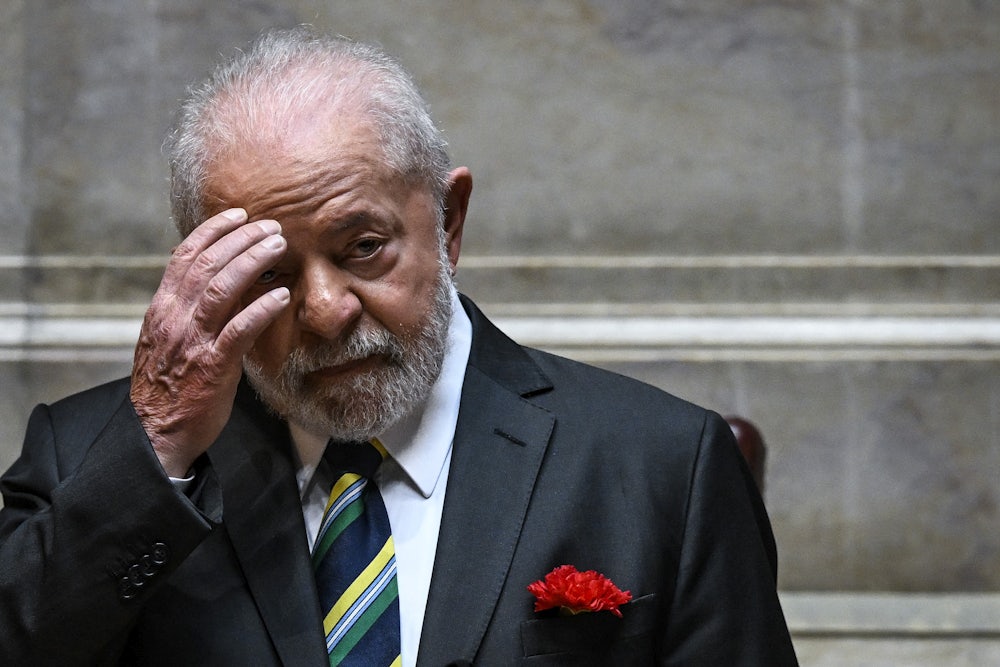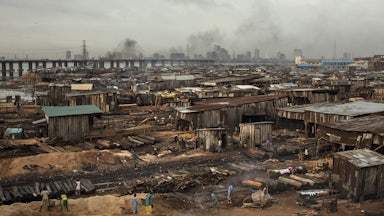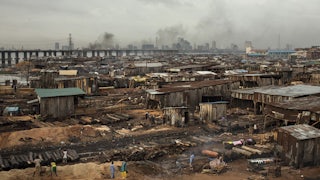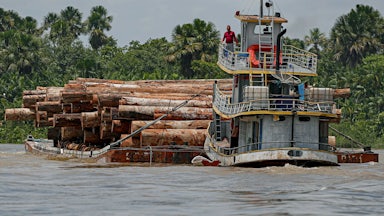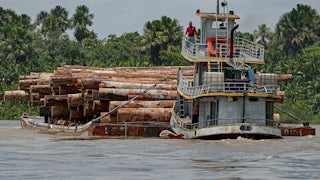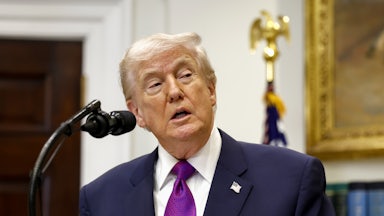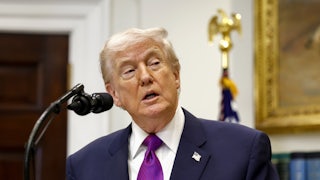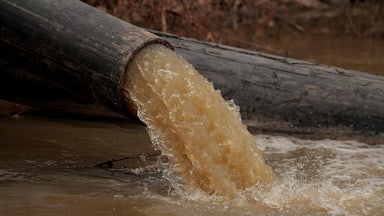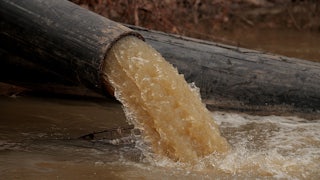Before he won an unprecedented third term last fall, former Brazilian President Luiz Inácio Lula da Silva buried the hatchet with the prominent environmental activist who had served as his environmental minister from 2003 to 2008. Marina Silva (no relation) left Lula’s Workers’ Party (Partido dos Trabalhadores) in 2009 and sharply criticized her former comrades during her own presidential runs in 2010, 2014, and 2018 over the party’s corruption scandals and for having embraced a destructive development model. The PT returned fire by portraying her as a sanctimonious tool of big banks beholden to the reactionary pastors of her evangelical faith. Things got nasty and personal. But in September, facing off against an openly authoritarian incumbent, Lula wanted to forge a broad front of support. Given her standing at home and abroad, making amends with Marina was a priority, one that would underscore Lula’s commitment to turning the page from the calamitous environmental record of Jair Bolsonaro. Upon winning, Lula once again made Marina his environmental minister, a post she assumed to international sighs of relief.
Nearly five months in, however, the administration seems to be fracturing over the same basic question that drove Marina out 15 years ago: namely, whether the president is willing to forgo massive new energy projects and stand up to major agricultural producers that contribute to Brazil’s balance of trade but who have funded far-right initiatives and are among those most responsible for Amazonian deforestation. The present crisis might fade, but it lays bare a critical paradox. Brazil—and, by extension, the planet that depends on the Amazon as a carbon sink—seems to be at a turning point. Lula’s administration, insiders believe, has to deliver on economic development if it wants to hold off a right-wing authoritarian resurgence. But doing that might mean caving on some of the very policies that were supposed to distinguish him from his predecessor. And by pursuing these short-term benefits, Lula would signal he might be willing to placate political forces who want to chip away at the high environmental bar he set for his administration.
Last week, the Brazilian Institute for the Environment and Renewable Natural Resources, or IBAMA, the government entity responsible for upholding both federal environmental laws and international agreements Brazil has ratified, denied a request from the country’s national oil company Petrobras to drill at the mouth of the Amazon river basin. The company’s petition reportedly failed to adequately address concerns over environmental safety. “There is no doubt that Petrobras was offered every opportunity to remedy critical points of its project, but it still presents worrying inconsistencies for the safe operation in a new exploratory frontier of high socio-environmental vulnerability,” the head of IBAMA wrote in his official statement.
Petrobras responded that at this stage, when it would only be checking for oil rather than extracting it, environmental risks are low. IBAMA was not convinced, insisting that the mouth of the river is especially delicate, housing various endangered species, indigenous territories, and mangroves of enormously abundant biodiversity. The agency’s competent technocratic corps put its foot down in a decision that Marina said this Tuesday would be “obeyed and respected.”
What followed was a kind of revolt. Senator Randolfe Rodrigues, an important Lula administration ally in Brazil’s upper chamber of Congress who hails from the state where Petrobras hopes to drill, quit Rede Sustentabilidade—the party that Marina founded in 2013 which he joined in 2015—in protest. Rodrigues believes new oil finds could be an economic boon to his state, one of the poorest in the country. Lula’s minister of mines and energy urged Petrobras to persist. Lula equivocated in an attempt to keep the peace: “If exploring this oil is a problem for the Amazon,” he said from the G7 summit in Japan, “it will certainly not be explored.” But he also downplayed the risks, leaving the door open to signing off on the project down the line. On Thursday, it was reported that Lula had hoped Marina would come to him before IBAMA’s negative response went public so that they could coordinate the political and policy implications. For her part, Marina said the findings were purely technical and could not be subjected to politicking. The president supposedly felt blindsided by his minister.
On one hand, this is a dispute among the various progressive factions that make up the Lula administration, most of which are committed to a sound, modern environmental agenda either for moral and ideological reasons or because it serves Brazil’s broader geopolitical interests. But the issue of whether or not to drill in the Amazon is also part of a much larger fight over Brazil’s role in the urgent global struggle to mitigate climate change. Some, like Senator Rodrigues, believe that oil isn’t going anywhere soon and that it would be foolish to leave precious resources untapped. Others, like prominent ecosocialist Sabrina Fernandes, excoriated the Lula administration for undermining the robust environmental agenda it promised to implement. “There’s a discrepancy in how the Lula government has presented its environmental agenda abroad and what is actually happening in the country. Although there’s improvement from the old Bolsonaro ways, where ecocide was the norm,” she told me, “the new government is lacking the climate leadership that was expected from Lula’s speech at COP27.” There is a legitimate substantive debate to be had about the path to sustainable development and whether new oil drilling should be on the table.
Yet the Brazilian right and big business are clearly intent on exacerbating this divide to tie up the Lula government and continue their destructive ways. A series of measures approved by Congress on Wednesday transferred several key attributions of Marina’s ministry of the environment and the newly created ministry of indigenous peoples to other agencies less likely to hold the line against the rapacious interests that drive so much environmental degradation, to the alarm of several NGOs. “They want to change [the cabinet makeup] to implement the Bolsonaro government in the Lula government,” Marina told Folha de São Paulo.
It has become painfully clear that the Lula government finds itself in an intractable position. As the well-sourced journalist Mônica Bergamo put it, “An important part of the inner circle of the Lula government has already thrown in the towel and understands that the president needs to hand over several rings to keep his fingers. That is, giving up concrete and also symbolic public policies, such as in the area of the environment, to achieve progress in at least one central theme: economic development, without which the government could fail resoundingly.” According to Bergamo’s sources in the administration, the government has realized it can’t pursue the social justice agenda it wanted to, given its legislative constraints. Above all, some of Lula’s circle believe he must deliver economically right away, or risk empowering right-wing forces that could endanger Brazil’s democracy.
For her part, Marina has promised to resist the pressure from those within the administration’s orbit pushing new carbon-based extractivist initiatives in the Amazon, as well as those aligned with agricultural interests and the former president. In recent days, she has emerged as the government’s conscience. If Marina embodies Brazil’s commitment to sustainable development—and she arguably does, which is why Lula wanted her in his cabinet—then efforts to undermine her in Congress and within the administration itself are a bad omen. “Both the ministry of the environment and the newly created indigenous ministry are targets and Lula’s own coalition is involved in the attacks,” Fernandes lamented, adding that “this crisis of governability is creating tensions in the leftist sector of the coalition, including inside the Workers’ Party, and risks downgrading the ecological agenda of Lula as just enough ‘environmentalism for gringos’ to see.” And the stakes for this administration are higher than they’ve been for prior PT governments, who delivered rising material gains for poor and working-class Brazilians even as Lula occasionally disappointed supportive social movements. In political and environmental terms, there is even less room for failure this time.
Bolsonaro brought Brazilian democracy to the brink. Perhaps because of that lingering scare, Lula’s standing in the polls remains quite strong—but that is only mildly comforting given the extremism Bolsonaro unleashed. The former president also laid waste to the country’s international standing. At one point during his time in office, serious people were talking seriously about some kind of international intervention in the Amazon. Lula was a welcome contrast. Up until last week, he had good people in key positions, deforestation was falling, and he reportedly prepared to embrace an even more stringent reduction of greenhouse gas emissions than previously promised. Indeed, the trump card in Lula’s back pocket through tense early moments with the United States and the European Union has undoubtedly been his commitment to high environmental standards.
He now risks squandering that asset. Sacrificing his environmental agenda—not to mention the integrity of his cabinet—might preserve a working relationship with a legislature chock-full of pillaging reactionaries, and mollify progressive allies who chafe at the intransigence of environmental and indigenous rights activists, but it risks alienating Washington and Brussels for good. This is a high-wire act for both Brazilian democracy and the climate that requires uncommon balance. Lula is supposed to be good at this. He’d better be—there’s no safety net at the bottom.
